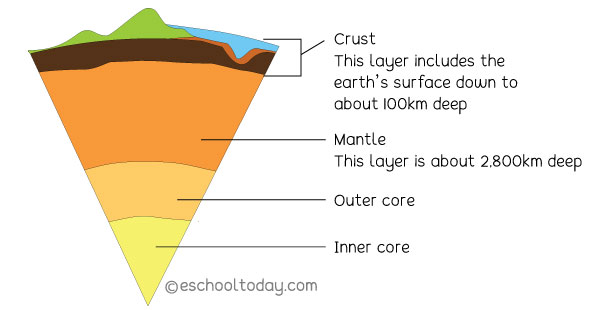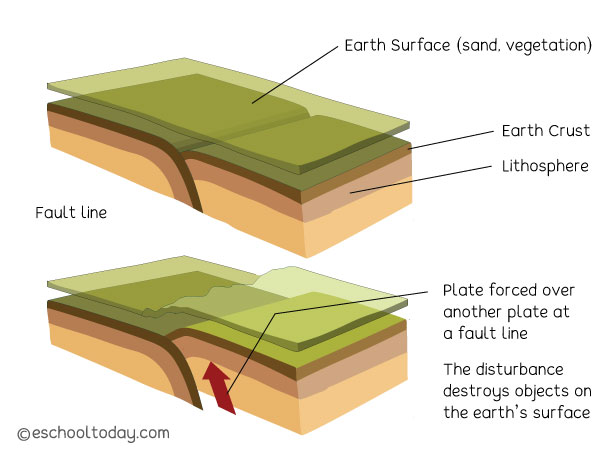- Earthquakes
How do earthquakes form?
Let us imagine what goes on in the outer crust with the help of this diagram.

Earthquakes develop in the crust part of the earth. The crust involves the earth’s surface, submarine levels, and down to the ocean floors. The inner part of the earth contains massive energy. Some of this energy escapes through cracks and other volcanic activity, but the bulk of it is stored within the earth’s inner part, contained in the crust.
The earth’s outer crust is held in place like a completed jigsaw puzzle, with rough edges and lines. The energy stored here causes the pieces to slide, glide, knock, and move around each piece. These pieces best describe what we call Tectonic plates (See illustration below)
After some time, the built-up energy and movement cause huge tension in the plates, and there is massive pressure on the fault lines. This intense pressure resulting from energy build-up causes the fault lines to give way, and plates move over, against, or apart from each other.

It is important to note that there is usually a very thick natural cover (earth and vegetation) that makes fault lines obscure.
There is an earthquake at this point. In the form of seismic waves (like water ripples), the escaping energy radiates outward from the fault in all directions. The seismic waves shake the earth as they move through it. When the waves reach the earth’s surface, they shake the ground and anything on it, tearing down houses and structures.
